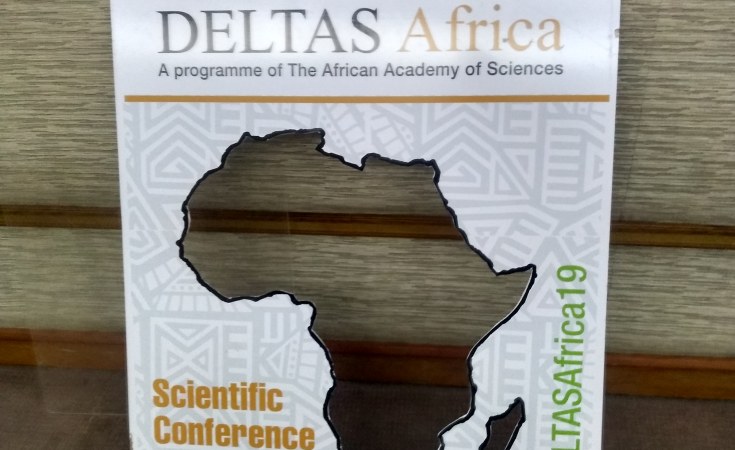"There is still a huge amount of effort in trying to develop malaria vaccines."
The African Academy of Sciences (The AAS) in partnership with the Malaria Research Capacity Development in West and Central Africa (MARCAD), Developing Excellence in Leadership and Genetic Training for Malaria Elimination in Sub Saharan Africa (DELGEME) and Afrique One African Science Partnership for Intervention Research Excellence(Afrique One ASPIRE) hosted the 2019 DELTAS Africa Scientific Conference at the King Fahd Palace Hotel,Dakar, Senegal from 15 – 17 July 2019. At the margins of this event, Dr Sam Kinuyanjui a researcher from Kenya sat with the AllAfrica Dakar team for an interview.
Good morning Mr Kinuyanjui, could you please introduce yourself to the AllAfrica audience
I am Doctor Sam Kinunyanjui, I work at the Camry Wellcome Trust Research program in Kenya, I also direct a capacity building initiative called Initiative to Develop African Research Leaders which is funded through the African Academy of Sciences. My primary interest is in understantanding immunity to Malaria in other words understanding the way our body responds to malaria parasites when they invade us or enter our system. I am particularly interested in these, because by understanding them we can now understand how to make a vaccine. The real vaccine work is, we try to make something that looks like the parasites that make us sick but the vaccine itself doesn't make us sick. The body reacts to whatever we put in the same way it reacts to the actual parasite. That means that when the actual parasite comes, it finds the body ready to fight it because the body's already, what we call primed by the vaccine. I am interested in finding what part of the malaria parasite we could take and put in the body to make it ready to fight the real parasite, the full parasite when it comes.
You are supposed to deliver a speech in this conference about the malaria vaccine. Could you tell us more about its status?
There is still a huge amount of effort in trying to develop malaria vaccines. Currently we have one vaccine, which is now being tested before being rolled out into the public. But a particular vaccine has provided about 30 to 50 % of protection against the severe disease . The protection it provides doesn't last very long, so it means after a while, after a year or two, we may have to vaccinate people again. So in a sense it is still a relatively inefficient vaccine but on the other hand it's the best vaccine we have so far. The vaccine is called RTS,S. Don't worry what it means. Apart from RTS,S there is a whole set of trial vaccines. going on, at different levels, some are very understage, we even wonder if it's safe to put them into the body. (.....) The challenge we have with developing a malaria vaccine - although we have known the malaria parasite for over 100 years now - is that the malaria parasite is very complicated , it has very many stages of life, it has very many clever ways of hiding from our immune system, in other words with some parasites for example, if you take measles or small pox we are lucky that somehow the body is able to make a response which the parasite cannot run away from or hide and once you' ve been vaccinated, some of those diseases like measles or small pox, you get lifetime protection. So after that, you'll never get exposed, you shouldn't get infected again, but with malaria parasites, whatever we do, they always seem to have a way of going around. So it means it will take a long time for us to develop immunity. So if you look at small children or people who have not been exposed to malaria, when they get malaria, thet get very sick and can even die. But people who have grown up in malaria areas, who have had repeated episodes, overtime those episodes become less and less severe, but they will never get to a point where they will never get the malaria infection. These are challenges, the complexity of the malaria parasite life cycle, and also the techniques that the malaria parasite uses to escape from our immune system.
Just one last question, what do you think about this conferece ?
This is a very good conference, as you've seen it, represented here are researchers and students from almost all over Africa probably except North Africa. What is wonderful is the opportunity not just to hear about the science being done in all these different institutions, that are part of the 12 Delta's consortia but it's also an opportunity for people to meet and network across Africa. So our young researchers, our students now meeting with researchers from other parts. So I would say, this is one of the major meetings where it's completely South to South networking and collaboration and I think for me, that is what makes it a very unique meeting.


